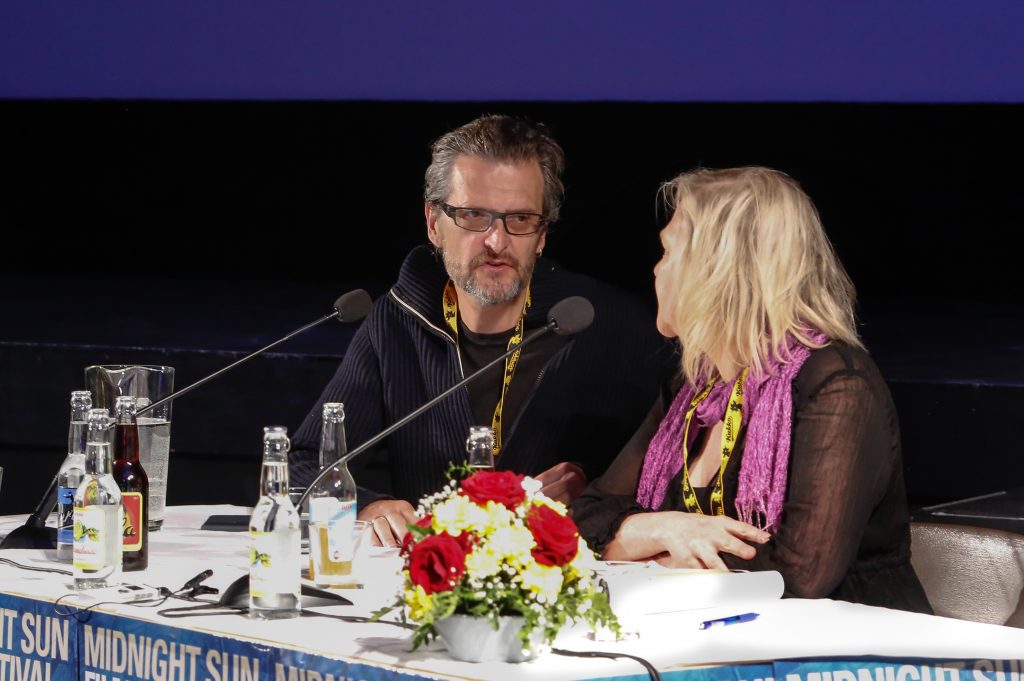EIJA POKKINEN
Eija Pokkinen did not get introduced to cinema until she was in high school. She grew up in a small town in the 1950’s and had no access to movie theaters or even television.
The war was a constant presence during her early years. The family had to flee their home when she was only a few months old. Now she thinks that her proficiency in languages has to do with this flight: languages were a door to another world. Due to her studies and language trips, Pokkinen eventually ended up as a model in Paris, which in its turn was a kind of gateway to acting.
On the later half of the 1960’s she had roles in the Filminor films Onnenpeli and The Green Widow, which were both screened at Sodankylä this year. Pokkinen had warm memories of working with director Risto Jarva. “His working methods were communal – it was important for him that we have discussions and work together as a group. He was a very peaceful and warmhearted person – I never saw him get angry.”
In The Green Widow, Pokkila played the main role of the frustrated suburban housewife. The film dealt with societal issues but Pokkila mainly considered the film a depiction of loneliness and a loveless marriage. Pokkila mentioned that she was the one who suggested the title The Green Widow and was rewarded a case of beer for that.
PER FLY
Per Fly originally wanted to be a musician, but had to eventually admit that his skills were not sufficient enough. Finally his then girlfriend whom he has since married, the actress Charlotte Fich, suggested that he should apply to film school. Fly had been responsible for the posters and videos for his band, so taking up filmmaking came naturally to him. He still begins a new film by concentrating on the music and soundscape. According to Fly, music is a good way to convey complex psychological phenomena and the status of a character.
”I’m not a cineast, I’m a consumer of film. I knew very little about film when I got into film school. Everyone was talking about a girl called Dolly, and in the end I had to ask, “Who is Dolly?” Of course, they were talking about a camera dolly”, Fly laughed.
It took a long time for Fly to come up with his debut feature. At the end he decided to go to the streets in search of inspiration. The film The Bench was born from Fly following the life of people living on the streets. Since then he has also made films concentrating on Danish middle and upper classes. ”I go where my curiosity takes me, not where I stand politically”, is how Fly summarized his philosophy.
The director’s latest feature Monica Z won several Guldbagge awards in Sweden. Fly appraised the star of the film Edda Magnason, who did not come from the world of cinema and was therefore not familiar with all the rules of filmmaking. This, according to him, brought honesty to the film.
